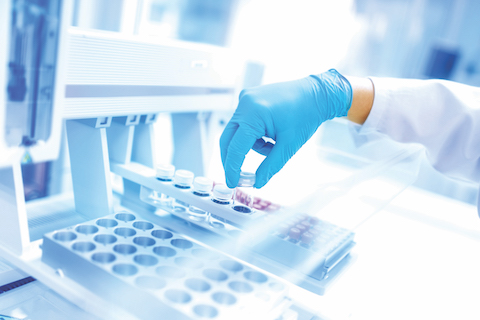预约演示
更新于:2025-07-05
CD19 CAR-T CELLS(Gaia Science)
更新于:2025-07-05
概要
基本信息
药物类型 自体CAR-T |
别名- |
靶点 |
作用方式 抑制剂 |
作用机制 CD19抑制剂(B淋巴细胞抗原CD19抑制剂)、Gene transference(基因转移) |
在研适应症 |
非在研适应症- |
非在研机构- |
权益机构- |
最高研发阶段临床2/3期 |
首次获批日期- |
最高研发阶段(中国)- |
特殊审评- |
登录后查看时间轴
关联
3
项与 CD19 CAR-T CELLS(Gaia Science) 相关的临床试验NCT06710717
Autologous CD19 Car T-Cell Therapy For Patients With Severe Refractory Systemic Lupus Erythematosus - A Pilot Study
This pilot clinical study aims to evaluate the effectiveness of Chimeric Antigen Receptor (CAR) T-cell therapy in treating severe, refractory systemic lupus erythematosus (SLE), an autoimmune disease driven by autoreactive B-cells. Current treatments for severe SLE, including glucocorticoids, cytotoxic, and immunosuppressive drugs, have significant limitations. These treatments do not adequately control the underlying autoimmune process and require long-term use, leading to chronic side effects and often failing to prevent permanent organ damage. Given the high prevalence and mortality rates associated with SLE in regions like Asia and Malaysia, there is a pressing need for more effective therapies.
开始日期2025-01-03 |
NCT06698484
A Phase II Open Label Single-arm Study to Evaluate Safety and Efficacy of Autologous CD19 CAR-T Cells in Patients With Relapsed/Refractory B- Non-Hodgkin Lymphoma
A Phase II Open-Label Single-arm Study to Evaluate Safety and Efficacy of locally manufactured autologous CD19-directed CAR T-cells in Patients with Relapsed/Refractory B- Non-Hodgkin Lymphoma (B-NHL) or patients not eligible for hematopoietic stem cell transplantation (HCT)
开始日期2021-06-03 |
NCT03937544
A Phase II/III Prospective, Open Label Study to Evaluate Safety and Efficacy of Intravenous Autologous CD19 CAR-T Cells for Relapsed/ Refractory B-Acute Lymphoblastic Leukaemia
This is Phase II / III, Prospective, single arm, Open Label Study to Evaluate Safety and Efficacy of Intravenous Autologous CD19 CAR-T Cells for Relapsed / Refractory B-Acute Lymphoblastic Leukaemia
开始日期2019-03-19 |
申办/合作机构 |
100 项与 CD19 CAR-T CELLS(Gaia Science) 相关的临床结果
登录后查看更多信息
100 项与 CD19 CAR-T CELLS(Gaia Science) 相关的转化医学
登录后查看更多信息
100 项与 CD19 CAR-T CELLS(Gaia Science) 相关的专利(医药)
登录后查看更多信息
182
项与 CD19 CAR-T CELLS(Gaia Science) 相关的文献(医药)2025-09-01·CURRENT CANCER DRUG TARGETS
Phase I Clinical Trial of CD19 CAR-T Cells Expressing CXCR5 Protein for
the Treatment of Relapsed or Refractory B-cell Lymphoma
Article
作者: Wang, Jiaxi ; He, Jixiang ; Zhou, Jie ; Zhang, Zhiyin ; Jiang, Yirong ; Lu, Wenyi ; Ding, Wen ; Xiao, Xia ; Jin, Xin ; Zhang, Meng ; Luo, Min ; Li, Guangchao ; Chen, Jianhang ; Yao, Zhuoxin ; Zhao, Mingfeng
Background::
It is difficult for CD19 CAR-T cells to enter solid tumors, which is one reason for their poor efficacy in lymphoma treatment. The chemokine CXCL13 secreted by stro-mal cells of the lymph nodes induces the homing of B and T lymphocytes, which express its receptor CXCR5. Preclinical trials have shown that the expression of CXCR5 on CD19 CAR-T cells can increase their migration to the tumor microenvironment and enhance their antitumor function.
Methods::
We engineered the CD19 CAR-T cells to express a second receptor, CXCR5. Then, we conducted a phase I clinical trial to evaluate the safety and efficacy of CXCR5 CD19 CAR-T cells in the treatment of relapsed or refractory (R/R) B-cell lymphoma.
Results::
We recruited 10 patients with R/R B-cell lymphoma undergoing CXCR5 CD19 CAR-T cell therapy. The objective response rate was 80%, and the complete response rate was 50%. The median follow-up time was 15.48 months (3.4-22.3 months), and the median Progression-Free Survival (PFS) time was 8.15 months (1.5-22.33 months). One patient received ASCT at 1.5 months (at PR) after infusion of CAR-T cells. The incidence of grade 1 and grade 2 Cytokine Release Syndrome (CRS) was 70% and 20%, respectively. No patient experienced grade 3 or higher levels of CRS, neurotoxicity, or infusion-related dose toxicity.
Conclusion::
The results obtained in this study suggest that CXCR5 CD19 CAR-T cells should be investigated in a trial with broader patient populations.
Trial Registration::
The trials were registered at www.chictr.org.cn as ChiCTR2100052677 and ChiCTR1900028692.
2025-06-01·BONE MARROW TRANSPLANTATION
Prior antibiotics exposure predicts early and prolonged CD19 CAR T-cell-related hematologic toxicity and prognosis in acute B-cell leukemia
Letter
作者: Du, Mengyi ; Xu, Kailin ; Liu, Jiachen ; Mei, Heng ; Lv, Bin ; Xu, Jia ; Li, Yingying ; Zhu, Feng
2025-05-17·AMERICAN JOURNAL OF CLINICAL PATHOLOGY
CD58 could be a leukemic marker in patients with relapsed/refractory B-cell acute lymphoblastic leukemia after multiline therapies
Article
作者: Kang, Jian ; Li, Pan ; Liu, Shuangyou ; Feng, Heyuan ; Li, Yafeng ; Yu, Xinjian
Abstract:
Objectives:
As a marker of minimal residual disease in B-cell acute lymphoblastic leukemia (B-ALL), CD58 has been reported in B-ALL at diagnosis and short-term follow-ups after standard chemotherapies. However, there are no data available in relapsed/refractory (r/r) patients who have received long-term and multiline therapies, especially chimeric antigen receptor (CAR) T cells; here, we focused on investigating CD58 status in these patients.
Methods:
CD58 expression on lymphoblasts was detected by multiparameter flow cytometry. CD58 status was evaluated in patients with r/r B-ALL before CAR-T therapy, and the patients who failed or relapsed after CAR-T.
Results:
Among 274 pediatric and adult patients prior to exposure to CAR-T cells (22.3% of them underwent allogeneic hematopoietic cell transplantation, allo-HCT), 228 (83.2%) showed CD58 positivity. Furthermore, among 58 patients who were CD58 positive before CAR-T failed or relapsed after CAR-T (half also received CD22 CAR-T or allo-HCT as a consolidation treatment following CD19 CAR-T), the frequency of CD58 expression was 79.3% (46/58) in all patients and 86.2% (25/29) in patients exposed to CD19 CAR-T cells alone.
Conclusions:
CD58 antigen was stably expressed in patients with r/r B-ALL after multiline therapies, including allo-HCT and CAR-T, indicating that it could still be a leukemic marker in heavily treated patients.
4
项与 CD19 CAR-T CELLS(Gaia Science) 相关的新闻(医药)2024-11-01
The FDA is reevaluating the secondary cancers boxed warnings that put a chill on CAR-T therapies, Center for Biologics Evaluation and Research Director Peter Marks, M.D., Ph.D., said.
An FDA announcement last year of an investigation into the risk of patients developing secondary cancers following the treatment of CAR-T cell therapies sent shock waves across the industry. The probe led to classwide black boxed warnings on existing CAR-T products’ labels.Now, less than a year later, the FDA is reconsidering those serious safety warnings with plans to change them potentially, Peter Marks, M.D., Ph.D., director of the FDA’s Center for Biologics Evaluation and Research (CBER), said in an interview with Fierce Pharma.“We are in the process right now of reevaluating the need for the current labeling on these products,” Marks said. “You may see some actions, in some cases, removing warnings, in some cases, adding warnings, changing warnings.”“There may be things that are specific to a specific CAR construct,” Marks said. “There may be other things that are perhaps seem to be more general across, for instance, the CD19 CAR-T cells.”The six meds involved are Gilead Sciences’ Yescarta and Tecartus, Bristol Myers Squibb’s Breyanzi and Abecma, Johnson & Johnson and Legend Biotech’s Carvykti, and Novartis’ Kymriah. They have been approved to treat various types of blood cancers including large B-cell lymphoma and multiple myeloma.Following the FDA’s high-profile scrutiny, complaints have been murmured among cell therapy developers and industry watchers that the FDA overreacted.The agency pounced on cases of secondary T-cell malignancies captured in its voluntary adverse event report system. An FDA analysis by Marks and Nicole Verdun, M.D., who leads therapeutic products at CBER, found 22 cases of T-cell cancers following treatment with a CAR-T product as of the end of 2023. A slightly earlier Nature Medicine study in January noted 20 reports out of an estimated 34,400 CAR-T receivers.As the authors of the Nature Medicine article pointed out, “the rate of T-cell malignancies observed is far lower than that seen with some other treatments.” Marks and Verdun, in their article, also said the cases “appear to be relatively rare.” Multiple studies have since looked into the risk of secondary cancers after CAR-T therapies. A meta-analysis published recently in the journal Clinical Cancer Research found that the rate of secondary cancer was no greater among patients treated with CAR-T than those on traditional standard of care.The industry complained that the FDA treated CAR-T unfairly while there are drugs with larger or similar numbers of secondary cancer reports that are being marketed without this boxed warning item. Besides, people with blood cancers already have various risk factors related to the secondary development of cancer in the first place.“Was it perhaps a bit of an overreaction? In retrospect, maybe,” Marks said in the interview. “But if you saw the rate at which the reports were coming in at the time, there was concern.”One main reason the FDA got scared was the agency initially “didn’t have a good handle on” the background rate of some secondary cancers, Marks explained.“Any time we have gene therapy in the mix, we tend to be a little extra cautious,” the FDA official said.“I think it was a good lesson,” Marks said. “The point […] is really well taken, which is that for lymphomas, a risk of 1 in 10,000 or 1 in 5,000 for a secondary lymphoma, or 1 in 1,000, is probably fully acceptable when in this salvage setting where the standard chemotherapies are associated oftentimes with […] even 1% of 2% of secondary malignancies.”“The good news is, I think we now can go back, we can tune things up,” Marks said. “And we have this under our belt, this experience going forward, because I’m sure we’re going to have more safety signals in the future as we have more novel products.” The FDA’s secondary cancer boxed warnings for the six commercial CAR-T meds for blood cancers have also put into question the commercial opportunities for CAR-T therapies that are being developed for autoimmune diseases.The FDA was concerned back then because the CAR-T field was expanding beyond cancer treatment, and the secondary malignancy problem could carry over to other disease settings, Marks explained.So far in lupus patients, cytokine release syndrome, a potentially dangerous side effect that’s also included in the boxed warnings of existing CAR-T therapies, appears to be milder than that seen in cancer patients. “So I think hopefully we’ll see kind of a reasonable safety profile here,“ Marks said. “I think understanding baseline data is really important, and also understanding … the totality of a field is sometimes very important."Marks pointed to lupus, which is a hot disease area in which CAR-T drugs are being tested. Here, a secondary malignancy rate of 1 in 1,000 or 5,000 could probably be acceptable in severe patients, Marks said, “comparing to other products and comparing to the nature of these diseases which kill people.”Marks encouraged biopharma companies to continue their CAR-T programs for autoimmune diseases and come talk to the FDA early if they start to see safety signals.“I think this, in particular, is an area where why we are very interested in kind of revisiting this boxed warning because I think it may make a real difference here in the level of comfort that people will have in that space of nonmalignant disease,” Marks said.Editor's note: This story was based on a fireside chat conducted in October as part of the Fierce Cell & Gene Virtual Event. The full interview, including remarks by Peter Marks, M.D., Ph.D., on the controversial approval of Sarepta Therapeutics' gene therapy Elevidys, intra-agency consistency, the working guidance on Platform Designation, AI and more, will go live Wednesday, Nov. 20.

细胞疗法免疫疗法上市批准基因疗法
2023-12-12
Results from a study led by the University Hospital Erlangen in Germany have revealed that CAR-T therapy significantly improved the symptoms of autoimmune diseases or made them go away entirely.
First conducted in 2021, previous findings from five patients with systematic lupus erythematosus (SLE) showed promising results after they all went into remission.
Affecting around 10% of the global population, autoimmune diseases occur when the body’s natural defence system mistakenly attacks normal cells.
Researchers tested whether CD19 CAR-T cells achieved a deeper reset of B cells, which trigger autoimmune diseases, eradicate autoimmunity and achieve lasting drug-free remission in autoantibody-dependent AID.
The study enrolled a further eight patients living with SLE, four with systemic sclerosis and three with inflammatory myositis (IIM), who were no longer responding to multiple standard treatments.
Within a week of receiving CAR-T infusions, researchers found that the patients’ B cells were eliminated from the blood and then reoccurred in most patients within a few months.
Additionally, all 15 participating patients were able to stop taking the immune-suppressive drugs to reduce the symptoms of their disease and all three IIM patients went into remission after three months, substantially reducing the activity of their disease.
Overall, the therapy was well tolerated with no treatment-related adverse events reported, with only ten cases of mild cytokine-release syndrome, which is an inflammatory side effect of CAR-T therapy, as well as single cases of experienced moderate cytokine-release syndrome and vertigo.
The study’s lead author, Dr Fabian Müller, managing director, Bavarian Cancer Research Institute and the Friedrich-Alexander University of Erlangen-Nuremberg, said: “We have opened up an entirely new route of possibly treating several more diseases.
“We are hopeful that this is at least as good as autologous bone marrow transplant with substantially fewer side effects, but the data is preliminary, and we need to do follow-up studies to confirm these results.”
Researchers have said that further research is required, with a larger group of patients, to determine whether the CAR-T therapy will have long-term benefits for patients living with chronic autoimmune diseases.
Additional clinical trials are currently underway to further test CAR-T cell therapy in patients living with several other autoimmune disorders.

细胞疗法免疫疗法临床结果临床研究
2023-11-09
ROCHESTER, Minn., Nov. 9, 2023 /PRNewswire/ -- Vyriad, Inc., a clinical-stage biotechnology company developing the next generation of targeted genetic therapies, today announced that its abstract, In Vivo Generation of Functional CD19 CAR-T Cells Using a Serum-Stable CD3-Targeted Lentiviral Vector, has been selected for an oral presentation at the 65th American Society of Hematology Annual Meeting to be held December 9-12, 2023, in San Diego, California. Vyriad's presentation will discuss progress in developing its highly targeted, efficient, serum-stable and durable lentiviral vector technology to deliver genetic payloads directly and specifically to CD3+ T cells.
Presentation Title: In Vivo Generation of Functional CD19 CAR-T Cells Using a Serum-Stable CD3-Targeted Lentiviral Vector
Session Name: Cellular Immunotherapies: Basic and Translational: Exploring Novel Platforms for Next-Gen CAR-based Therapies
Presentation Date/Time: Monday, December 11, at 11:30 a.m. PT
Presenting Speaker: Stephen J. Russell, M.D., Ph.D., Chief Executive Officer
Full abstracts are available for online viewing via the ASH Annual Meeting website at .
About Vyriad, Inc.
Vyriad is a clinical-stage biotechnology company developing the next generation of targeted genetic therapies using engineered viruses, viral vectors and viral envelope glycoproteins to deliver genes directly to targeted cells. This targeting technology facilitates oncolytic virotherapy, in vivo gene therapies and gene editing applications. Phase 1-2 trials with our oncolytic viruses, both as monotherapies and in combination with immune-oncology drugs, are underway in multiple cancer indications in collaboration with Regeneron, Mayo Clinic and other research and medical institutions. Vyriad is a privately held company based in Rochester, Minnesota. For more information, visit .
Vyriad Media Contact:
Scott Beck
Vyriad, Inc.
[email protected]
SOURCE Vyriad, Inc.
免疫疗法ASH会议细胞疗法临床研究
100 项与 CD19 CAR-T CELLS(Gaia Science) 相关的药物交易
登录后查看更多信息
研发状态
10 条进展最快的记录, 后查看更多信息
登录
| 适应症 | 最高研发状态 | 国家/地区 | 公司 | 日期 |
|---|---|---|---|---|
| 伯基特淋巴瘤 | 临床3期 | 马来西亚 | 2019-03-19 | |
| 伯基特淋巴瘤 | 临床3期 | 马来西亚 | 2019-03-19 | |
| 前体B细胞急性淋巴细胞白血病 | 临床3期 | 马来西亚 | 2019-03-19 | |
| 前体B细胞急性淋巴细胞白血病 | 临床3期 | 马来西亚 | 2019-03-19 | |
| 难治性 B 细胞急性淋巴细胞白血病 | 临床3期 | 马来西亚 | 2019-03-19 | |
| 难治性 B 细胞急性淋巴细胞白血病 | 临床3期 | 马来西亚 | 2019-03-19 | |
| 复发性B细胞淋巴瘤 | 临床2期 | 马来西亚 | 2021-06-03 | |
| CD19阳性B细胞淋巴瘤 | 临床2期 | 马来西亚 | 2021-06-03 | |
| 系统性红斑狼疮 | 临床1期 | 马来西亚 | 2025-01-03 |
登录后查看更多信息
临床结果
临床结果
适应症
分期
评价
查看全部结果
| 研究 | 分期 | 人群特征 | 评价人数 | 分组 | 结果 | 评价 | 发布日期 |
|---|
No Data | |||||||
登录后查看更多信息
转化医学
使用我们的转化医学数据加速您的研究。
登录
或

药物交易
使用我们的药物交易数据加速您的研究。
登录
或

核心专利
使用我们的核心专利数据促进您的研究。
登录
或

临床分析
紧跟全球注册中心的最新临床试验。
登录
或

批准
利用最新的监管批准信息加速您的研究。
登录
或

特殊审评
只需点击几下即可了解关键药物信息。
登录
或

Eureka LS:
全新生物医药AI Agent 覆盖科研全链路,让突破性发现快人一步
立即开始免费试用!
智慧芽新药情报库是智慧芽专为生命科学人士构建的基于AI的创新药情报平台,助您全方位提升您的研发与决策效率。
立即开始数据试用!
智慧芽新药库数据也通过智慧芽数据服务平台,以API或者数据包形式对外开放,助您更加充分利用智慧芽新药情报信息。
生物序列数据库
生物药研发创新
免费使用
化学结构数据库
小分子化药研发创新
免费使用

